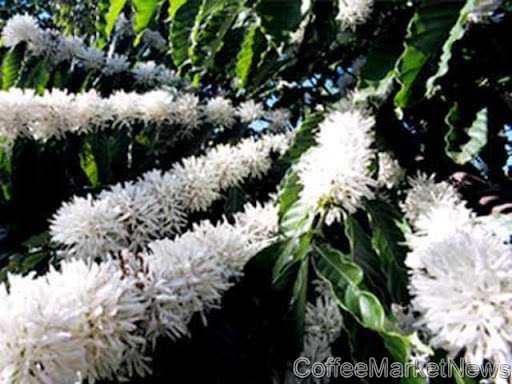 Arabica coffee prices rose to a 34-year high – fast-approaching the barrier of $3 per pound – amid a long-standing shortage of the high-quality bean appreciated by espresso connoisseurs.
Arabica coffee prices rose to a 34-year high – fast-approaching the barrier of $3 per pound – amid a long-standing shortage of the high-quality bean appreciated by espresso connoisseurs.
The International Coffee Organisation in London warned on Wednesday in its monthly market report that prices would remain high for the time being.
“Market fundamentals continue to favour firm prices,” it said.
“Given the limited availability of Arabica coffee on the international market and the strength of domestic consumption in Brazil, high levels of production in Brazil in crop year 2010-11 failed to have a negative impact on prices.”
In New York, ICE May Arabica coffee surged to a session high on Wednesday of $2.9665 per pound, the highest level since prices hit a peak above $3.40 per pound in 1977 after a deep frost had destroyed the crop of Brazil two years earlier. Unlike the previous four big rallies of the coffee market – in 1975-1977, 1985-1986, 1994 and 1997, which were triggered after frost affected Brazil’s coffee belt, the current high level has a broader cause.
Supplies are struggling in several countries but demand is still strong.
As a result, stocks have fallen to their lowest levels since the ICO started tracking them in the 1960s.
“The prospect for replenishment of stocks in producing countries remains weak,” the ICO said.
Coffee traders believe that Arabica prices will soon break past $3.40 a pound, forcing roasters to raise retail prices once more.
The wholesale price of Arabica coffee has jumped nearly 125 per cent during the past year.
A series of retail price rises has not so far dented consumption growth, industry executives said.
JM Smucker , the US company behind the Folgers coffee brand that is seen as the trendsetter in the sector, has raised retail prices three times during the past year and has warned it would do so again if wholesale prices were not to fall soon.
But the ICO said in its monthly report: “The precarious balance between supply and demand continues to favour firm prices.”
Traders said Colombia, a top source of high-quality Arabica beans, had suffered a low crop for a third successive year. The Brazilian crop is also lower than previously expected.
(Source: http://www.ft.com/cms/s/0/8752fdb6-4a7c-11e0-82ab-00144feab49a.html#axzz1GClFSCNo)

No comments:
Post a Comment